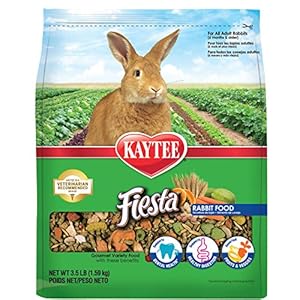About 5 years in the past, regulators in Maine began to search out alarming ranges of per- and polyfluoroalkyl substances—generally known as PFAS or endlessly chemical compounds—in farm fields. They quickly found the primary supply: sewage sludge unfold as fertilizer. Some farmers may not produce secure meals on account of PFAS’ hyperlinks to cancer and other health risks. Some needed to shift what and the place they planted, whereas others shut down their operations for good. Exams discovered water in a whole bunch of rural wells unsafe to drink, and households confronted an unsure future with concern.
Adam Nordell is among the farmers who misplaced all of it. After he was compelled to hold up his hoe and relocate his household, he went to work for an area nonprofit known as Defend Our Health, the place he now makes use of what he calls his “undesirable data base” to do outreach and schooling in farm communities and join affected farmers with assets.
Nordell remains to be residing with the results of PFAS contamination, and he prefers to not linger on the subject of the trauma it brought about his household. But when there’s one optimistic factor he remembers about 2020, when all of this was coming to mild, it’s that the state’s typically fractured farming neighborhood got here collectively.
“I used to be an natural vegetable farmer, and traditional dairy farmers have been reaching out expressing concern,” he mentioned. “The prospect of chemical contamination is one thing that no person needs on their farm and that everybody acknowledges as posing a possible risk.”
Sensing a public well being and meals safety disaster of epic proportions, Maine’s legislators set to work. In brief order, they wrote and handed trailblazing state laws to sort out the thorny downside from a number of instructions. They created a $60 million fund to help affected farmers, for instance, and started a phaseout of consumer products that include “deliberately added” PFAS. Most significantly for farmers on the time, they banned the spreading of sludge, a transfer Nordell mentioned drew enthusiastic help from many, however not all, farmers.
On the identical time, in 2020, watchdog teams first found PFAS in sure pesticides, which directed nationwide consideration as to whether farm chemical compounds may be another source of contamination.
How important of a PFAS supply pesticides may be stays unresolved, particularly as a result of completely different extremely accredited labs have produced conflicting exams. One preliminary examine discovered excessive ranges of PFAS in frequent pesticides, however when the U.S. Environmental Safety Company (EPA) did its personal testing on the identical merchandise, it reported none. Environmental teams are currently contesting the company’s report.
“The prospect of chemical contamination is one thing that no person needs on their farm and that everybody acknowledges as posing a possible risk.”
No matter these outcomes, a couple of issues have change into clear: Based mostly on the most commonly used global definition of PFAS, greater than 60 pesticides registered by the EPA include an lively ingredient outlined as PFAS. Different pesticides could include PFAS as undisclosed additives or from chemical compounds leaching from the plastic containers through which they’re saved.
When Maine lawmakers turned their consideration to tackling pesticides as a supply of PFAS, they encountered new opposition. Between 2021 and 2024, CropLife America and Accountable Trade for a Sound Atmosphere (RISE), the pesticide business’s commerce organizations, paid lobbyists within the state greater than $100,000 to work on a number of payments, together with PFAS rules.
On the identical time, RISE alerted Maine-based members of what it calls its “grassroots community.” To create that community, RISE recruits people who make, promote, or are closely invested in using pesticides (like golf course superintendents and landscapers) across the nation, gives trainings and messaging, after which sends advocacy alerts when legal guidelines are launched in a given state.
So, whereas Maine passed the nation’s first legal guidelines requiring corporations to reveal whether or not pesticides they promote include PFAS and to finally part out people who do, the struggle continues. After the commerce teams pushed for delays within the implementation of the regulation, legislators in 2023 delayed the phaseout of PFAS in pesticides by two years. Then, in 2024, primarily based on Maine lobbying records, CropLife and RISE advocated for a invoice to exempt agriculture totally from the necessities. Though it initially failed, lawmakers anticipate will probably be launched once more subsequent 12 months.
In 2023 testimony submitted to Maine legislators supporting rollbacks to the rules on PFAS in pesticides, Karen Reardon, vp of public affairs for RISE, argued that the state’s PFAS definition is overly broad and lacks a scientific foundation. She additionally mentioned corporations have been nervous that submitting affidavits on PFAS of their merchandise may expose their commerce secrets and techniques, and state regulators wanted extra time to develop a system that will adequately defend “confidential enterprise info.”
Some farm teams, together with the Maine Potato Board and Maine Farm Bureau, additionally oppose the foundations for PFAS in pesticides and have known as for the agricultural exemption, citing the truth that shedding entry to sure pesticides may damage the state’s farmers. In arguing for an exemption for agriculture final March, Donald Flannery, then the chief director of the Maine Potato Board, cited the financial worth Maine’s farmers deliver to the state. He famous that insecticides utilized in Maine “are all permitted and licensed by EPA,” and mentioned that whereas he acknowledged the necessity to clear up PFAS air pollution, enterprise and business needs to be allowed to maneuver ahead within the meantime.
If pesticides will not be exempt from PFAS rules, he mentioned, “there’s threat of shedding merchandise, which can have a unfavourable impression on our capacity to develop and defend our crops.”
Supporters of the PFAS rules dispute that concept as a result of the regulation comprises a safeguard permitting farmers to make use of pesticides that include PFAS if there’s a “at present unavoidable use.” (For instance, if a farmer reveals there is no such thing as a various product that may deal with a pest situation they face.)
A Effectively-Worn Playbook
The battle over regulating PFAS in pesticides in Maine seems to be loads like one other heating up in Maryland. The truth is, it illustrates a state of affairs repeated in states nationwide every year, the place the pesticide business prompts a well-worn playbook in an effort to cease restrictions on pesticide use which might be meant to deal with a broad vary of impacts. And it includes a few of the identical ways Civil Eats reported on on this sequence, in our story on Bayer’s lobbying efforts to go legal guidelines limiting their legal responsibility for alleged harms attributable to glyphosate.
First, CropLife, RISE, and the businesses they characterize fund state-level lobbying. On the identical time, they activate people inside corporations that promote and use pesticides to advocate for what the businesses need. Lastly, they align with farmer organizations that doubtless have extra clout within the eyes of lawmakers and the general public.
Rick Zimmerman, a New York lobbyist who has represented each pesticide corporations and farm teams to oppose state pesticide restrictions, mentioned that alignment was not about utilizing farmer capital. As a substitute, he mentioned, it occurs as a result of farmer teams and the pesticide business are typically against state governments getting concerned within the regulation of farm chemical compounds. “The varied organizations and firms that I represented are on frequent floor,” he mentioned. “It’s only a pure alternative for organizations and firms with related pursuits to have the ability to collaborate and work collectively.”
Nevertheless, whether or not the difficulty is neonicotinoid use in New York or small cities in Colorado passing their very own pesticide legal guidelines, the technique has actual impacts. Within the case of PFAS, Nordell and others mentioned that it may imply penalties for farmers, farmworkers, and broader communities.
“Are there massive out-of-state companies which have a monetary incentive engendering opposition to [Maine’s pesticide] legal guidelines? Sure, definitely. They present up in committee each session, and I feel there’s a number of misinformation about what is going to occur as we regulate PFAS out of the economic system.”
Maine’s preliminary evaluation discovered near 1,500 pesticide products which might be made with an lively ingredient that meets the state’s definition of PFAS. Nordell mentioned that whereas the contamination from sludge was comparatively simple to check and hint, pesticides is probably not as seen as a supply of PFAS.
“We must always actually take into consideration farmworkers who’re spraying the pesticides. We must always take into consideration the neighbors of the farmers who depend upon clear water like all of us do. All of us are depending on a clear meals system. When, for the sake of commerce, we flip a blind eye to environmental toxins, all of us endure in any state of affairs—however definitely after we’re speaking in regards to the security of the meals provide,” Nordell mentioned. “Are there massive out-of-state companies which have a monetary incentive engendering opposition to [Maine’s] legal guidelines? Sure, definitely. They present up in committee each session, and I feel there’s a number of misinformation about what is going to occur as we regulate PFAS out of the economic system.”
Representatives from CropLife America and RISE didn’t reply to Civil Eats’ repeated requests for interviews, or to detailed questions despatched asking for his or her feedback on factors lined on this article.
CropLife and RISE Lead the Method
Whereas Maine grappled with PFAS inside its borders, other sources of PFAS, like fire-fighting foam and takeout containers, entered the nationwide dialog. PFAS air pollution was more and more measured in consuming water and human our bodies, and information on the well being dangers linked to publicity to frequent PFAS like PFOA and PFOS, even at very low ranges, started to build up.
A couple of states to the south, Maryland has additionally been attempting to remain forward of the sport, and the Maryland Pesticide Education Network (MPEN) is central to that effort. MPEN has been probably the most lively pesticide watchdog teams within the nation for 3 many years, and over the previous couple of years, they turned their consideration to PFAS.
PFAS knowledgeable Linda Birnbaum is a toxicologist who spent 20 years on the EPA and directed the Nationwide Institute of Environmental Well being Sciences. As she put it throughout MPEN’s annual convention in November, “You give me a physiological system, and it’s doubtless there shall be proof that PFAS disrupt it,” she mentioned, pointing to related harms together with kidney most cancers, liver toxicity, excessive ldl cholesterol, and beginning defects.
Trending Merchandise










